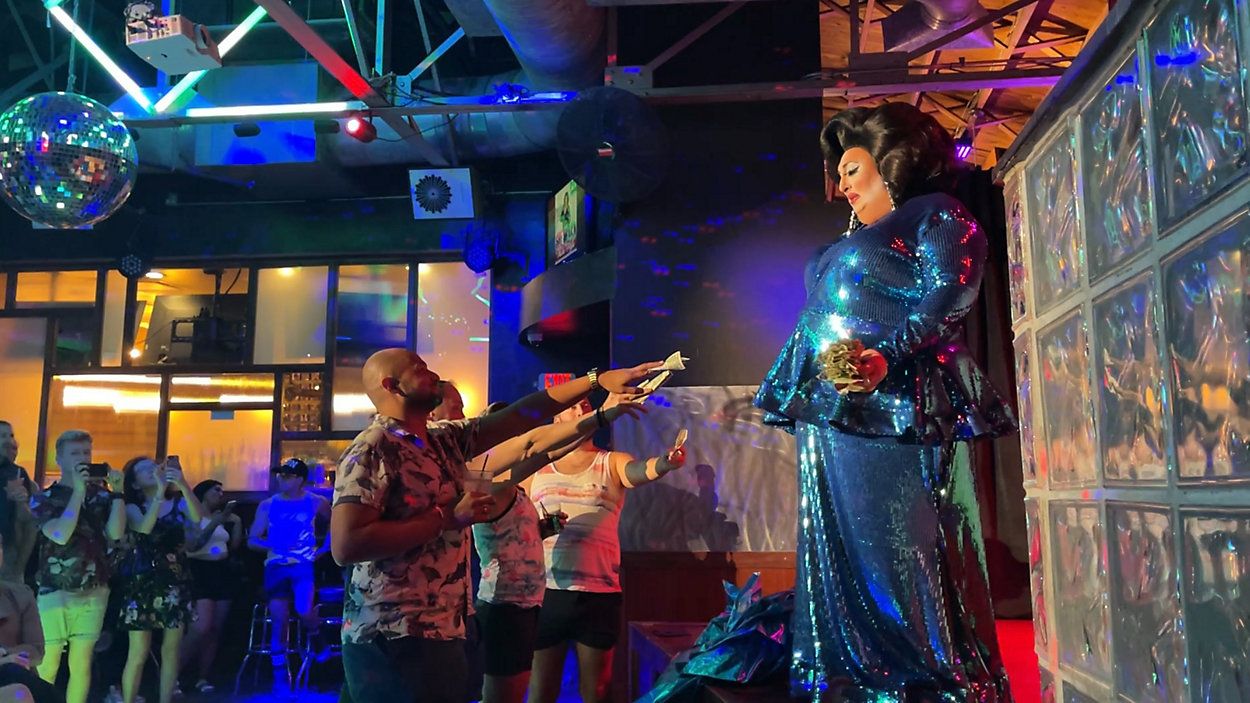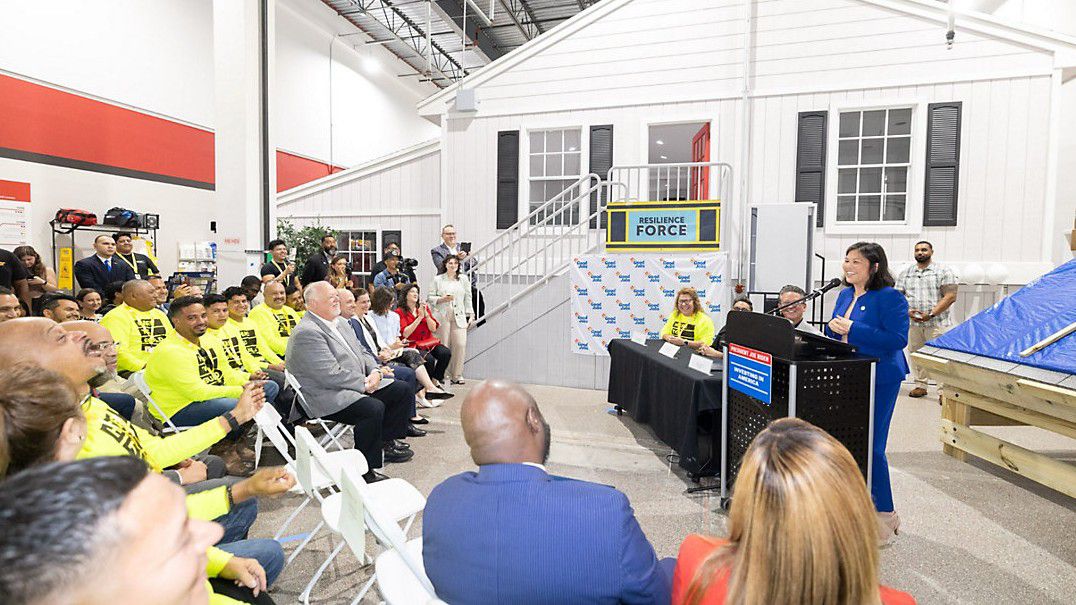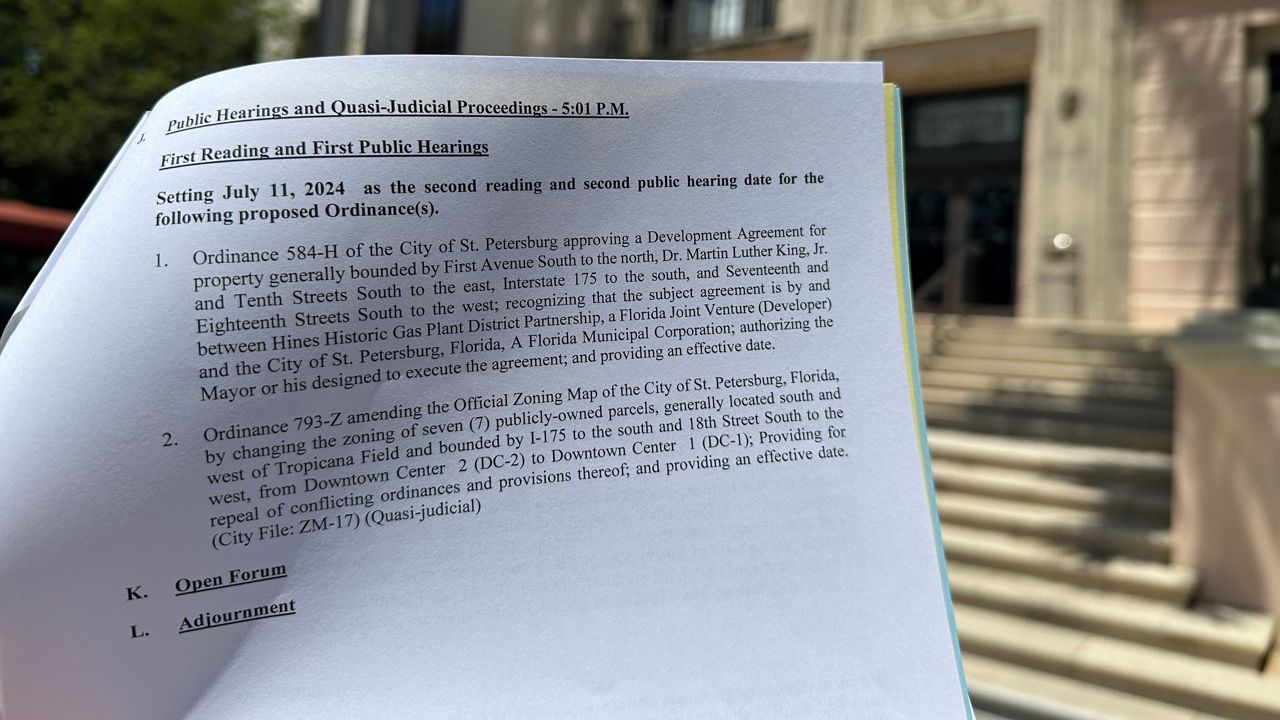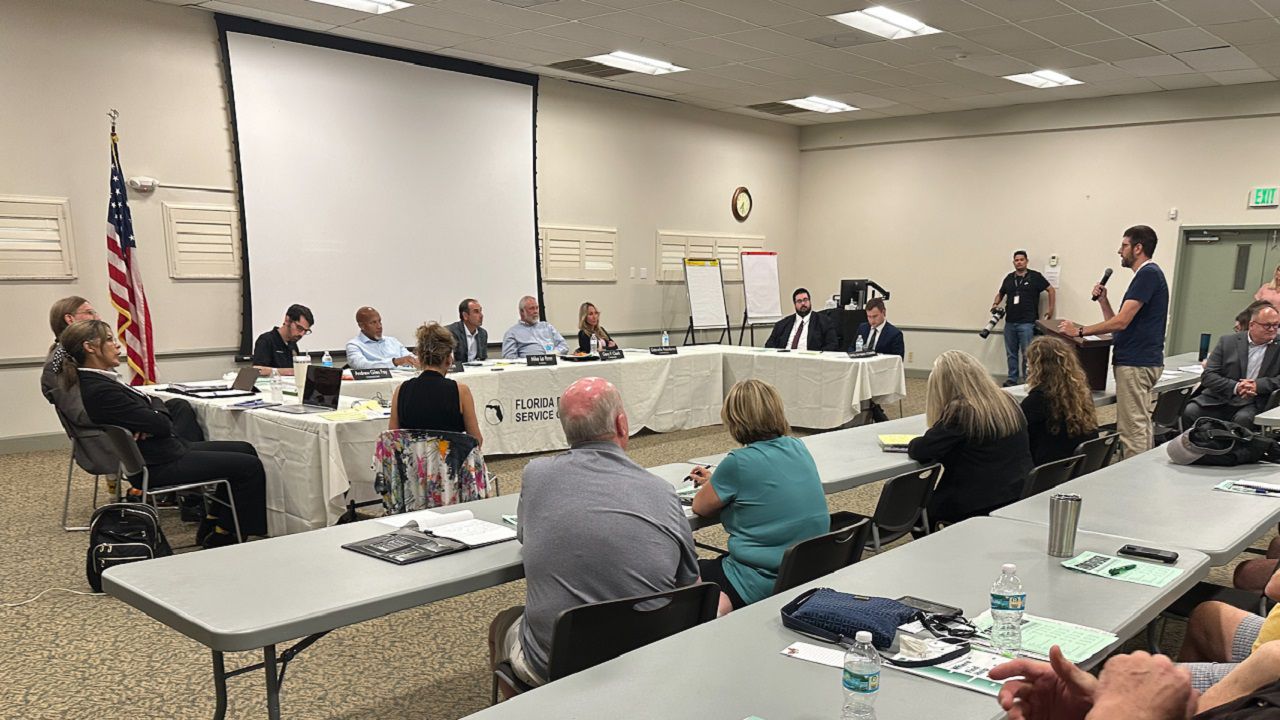ORLANDO, Fla. — A federal judge ruled Friday that Florida's controversial "Protection of Children" bill cannot be enforced while its constitutionality is parsed out by the courts.
The suit was filed by the owner of Hamburger Mary's Bar & Grille — which has a location in Orlando that opened in 2008, and regularly hosts "family friendly" draw show performances — against Florida Secretary of Business and Professional Regulation Melanie Griffin.
What You Need To Know
- Orlando's Hamburger Mary's Bar & Grille filed a lawsuit in May asking a judge to block Florida's "Protection of Children" law from going into effect
- The law bans anyone from allowing a child from attending a "live adult performance," which proponents have said includes drag shows
- The business argued that the law, among other things, violates its First Amendment right to host family friendly shows and is unconstitutionally "vague and overbroad"
- District Judge Gregory A. Presnell granted an injunction Friday to prevent the law from being enforced while it is challenged in court
Florida's Protection of Children Bill, which was signed into law by Gov. Ron DeSantis in May, bans anyone from allowing a child to attend a "live adult performance." Punishment for violating the law is a first-degree misdemeanor, and businesses involved can be fined or lose their operating and/or liquor licenses.
The plaintiffs in the case argued that the law violates their First Amendment rights and has caused them financial harm because Orlando's Hamburger Mary's has had to cancel its regular family friendly drag shows.
The plaintiffs made the argument — and the judge agreed — that the statute is "not sufficiently narrowly tailored to achieve a compelling government interest and that it is constitutionally vague and overbroad."
District Judge Gregory A. Presnell even went so far as to argue that the "Protection of Children" bill likely violates another piece of legislation recently passed in Florida: the Parents' Bill of Rights.
"Similarly indicative of the Florida Legislature’s failure to narrowly tailor (the "Protection of Children" bill) is its inevitable clash with the Florida 'Parents’ Bill of Rights' and other laws ... In pertinent part, (the 'Parents' Bill of Rights' law) states that: 'All parental rights are reserved to the parent of a minor child in this state…including…[t]he right to direct the upbringing and the moral or religious training of his or her minor child.'"
While the "Protection of Children" bill was being considered, its sponsor in the Florida House, Rep. Randy Fine, told Spectrum News that the only aim of the bill was to shield children from inappropriate content.
“We’re not saying they can’t take their kids to a drag show," Fine said. "Our bill says they can’t take their child to adult live entertainment, as we’ve defined in the bill. There is a right to parent your child, but there are guardrails. You can’t beat your child with a stick, you can’t choose not to feed them, you can’t say they can’t be educated — you have no right to abuse your child and we think sexualizing children is child abuse.”
Presnell, though, pointed out in his ruling that while the bill would criminalize the act of taking a child to a "live adult performance," it is still perfectly legal in Florida to take a child to a movie containing the same, or worse, content.
"This concern rings hollow, however, when accompanied by the knowledge that Florida state law, presently and independently of the instant statutory scheme, permits any minor to attend an R-rated film at a movie theater if accompanied by a parent or guardian," Presnell wrote. "Such R-Rated films routinely convey content at least as objectionable as that covered by (the "Protection of Children" law)."
The judge also pointed out a section of the law that prohibits "lewd exposure of prosthetic or imitation genitals or breasts," saying established caselaw does not support classifying "a fully clothed drag queen with cleavage-displaying prosthetic breasts reading an age-appropriate story to children" as obscene in the way that Florida's law does.
The focus on artificial genitals or breasts also raises the possibility of inadvertently criminalizing other protected speech, Presnell added.
"Moreover, the Act’s focus on 'prosthetic or imitation genitals or breasts' raises a host of other concerns not simply answered — what are the implications for cancer survivors with prosthetic genitals or breasts?" he wrote. "It is this vague language — dangerously susceptible to standardless, overbroad enforcement which could sweep up substantial protected speech which distinguishes (the "Protection of Children" law) and renders Plaintiff’s claim likely to succeed on the merits."
Additionally, Presnell wrote that Florida already has laws on the books to protect children from the types of situations covered by the "Protection of Children" bill.
"The state claims that this statute seeks to protect children generally from obscene live performances," he wrote. "However, as explained (below), Florida already has statutes that provide such protection. Rather, this statute is specifically designed to suppress the speech of drag queen performers. In the words of the bill’s sponsor in the House, State Representative Randy Fine: '…HB 1423… will protect our children by ending the gateway propaganda to this evil — ‘Drag Queen Story Time.’ '"
The state had filed a motion to dismiss the plaintiff's case, which Presnell denied, finding that the lawsuit was appropriately filed and that Hamburger Mary's had standing to sue.
Presnell's ruling granted the business a preliminary injunction that will prohibit the state from "instituting, maintaining, or prosecuting and enforcement proceedings under the ("Protection of Children") Act until further order of the Court following a trial on the merits of this case."
A statement from the state and/or DeSantis' and Griffin's offices was not immediately released. Spectrum News contacted the relevant state offices for comment on the ruling, but has not yet received a response.
Mark Boxley - Digital Media Producer
Mark is a longtime newspaper reporter who started his career at a small outlet in Bardstown, Ky., after graduating from the University of Kentucky with a BS in journalism. He is a former Kiplinger Fellow at Ohio State University and has worked as a journalist in Wisconsin, Kentucky, Tennessee, Ohio, and Florida. Mark became a digital media producer with Spectrum News in 2020.








